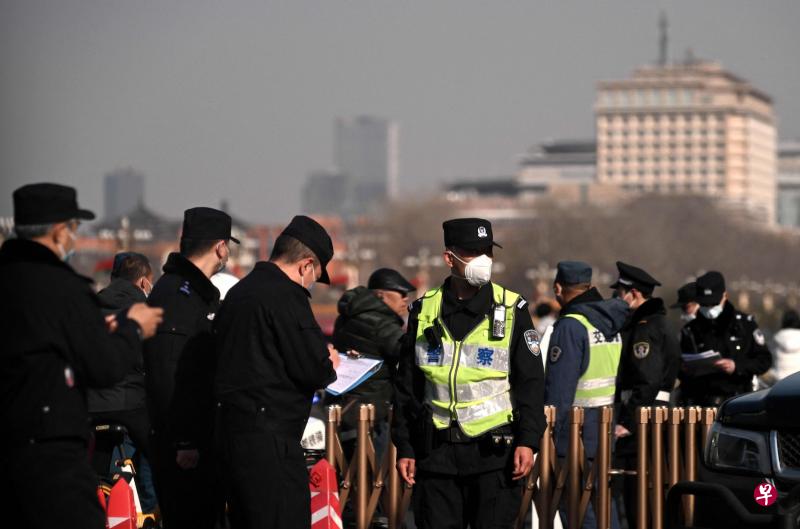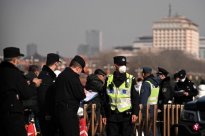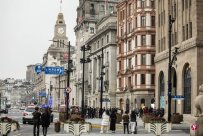
China Two Sessions 2023
Special
The 20th National Committee of the Communist Party held in October last year selected the new Central Committee, and then elected the Central Political Bureau, the Standing Committee of the Politburo, the Central Military Commission, etc.The leadership agency has completed the senior party and military high -level re -level, and laid a framework for the State Council, the National People's Congress, and the National Committee of the Chinese People's Political Consultative Conference during the two sessions.
The National People's Congress of China and the National Committee of the Chinese People's Political Consultative Conference (two sessions) will begin on March 4.This year's two sessions are at the end of the State Council, the National People's Congress, and the National Committee of the Chinese People's Political Consultative Conference in five years. In addition, the impact of the crown disease epidemic has weakened significantly. It is expected that the two sessions will exceed 10 days.
Views: Personnel changes
The highlights of the two sessions this year first publicized personnel changes.The 20th National Congress (20th National Congress) held in October last year selected the new Central Committee of the Central Committee.The high -level military generals have laid a framework for the State Council, the National People's Congress and the National Committee of the Chinese People's Political Consultative Conference during the two sessions.
The National People's Congress will select the President and Vice Chairman of the State Council to determine the State Council Prime Minister, Vice Premier and Minister of the Minister.Chinese officials are expected to continue to be elected as the President of the State, the former member of the Politburo Standing Committee of the Communist Party of China and the vice premier of the State Council, Han Zheng will replace Wang Qishan as the Vice President of the State.
According to the practice, the Prime Minister of the State Council, the chairman of the Standing Committee of the National People's Congress, and the chairman of the National Committee of the Chinese People's Political Consultative Conference are the leaders of the second, third and fourth of the Standing Committee of the Political Bureau of the Communist Party of China.According to this ranking, Li Qiang will replace Li Keqiang as the Prime Minister of the State Council. Zhao Leji will replace Li Zhanshu as the chairman of the Standing Committee of the National People's Congress. Wang Huning will replace Wang Yang as the chairman of the CPPCC National Committee.
Ding Xuexiang, member of the Standing Committee of the Political Bureau of the Communist Party of China, will be the first deputy prime minister in the State Council, and the other three deputy prime ministers are He Lifeng, Liu Guozhong and Zhang Guoqing, members of the Political Bureau of the Communist Party of China.According to the current leadership of the State Council, Li Qiang will be responsible for the full work of the State Council. Ding Xuexiang will replace Han Zheng in charge of the National Development and Reform Commission, the Ministry of Finance, the Ministry of Ecology and Environment, etc. He Lifeng will be responsible for finance, industry, transportation, technology, etc.Culture, sports, etc., Zhang Guoqing will be responsible for agriculture and business.
At the same time, the State Council will also have several new State members, including Li Shangfu, member of the Central Military Commission of the Central Military Commission who will be the Minister of Defense.Original secretary Yun Yiqin.New Foreign Minister Qin Gang is also likely to be selected for the State Council.
Li Hongzhong, member of the Political Bureau of the Communist Party of China, may be the vice chairman of the National People's Congress, former member of the Political Bureau of the Communist Party of China, and currently the vice premier of the State Council, Hu Chunhua, may be the vice chairman of the CPPCC, the director of the Supreme Court Zhou Qiang, the State Councilor Wang Yong, the whole countryShen Yueyue, the vice chairman of the National People's Congress, has also entered the list of members of the CPPCC National Committee and is expected to be the vice chairman of the CPPCC National Committee.
The heads of the central ministries and commissions have been adjusted around the 20th National Congress of the Communist Party of China.It is reported that Zhu Hexin, chairman of CITIC Group, may replace Yi Gang as the president of the People's Bank of China. He Lifeng may serve as the Secretary of the Party Committee of the Central Bank as a deputy prime minister.
On the day of the closing of the National People's Congress, the new Prime Minister Li Qiang will hold his first Chinese and foreign press conference after taking office.How Li Qiang, who has no work experience in the State Council, has attracted much attention from public opinion.
Views 2: Reform of the Communist Party of China and the state institution
Since the 1980s, the Chinese government has changed institutional reform every five years.In March 2018, the official reform reform was pushed from government agencies to the party, political, military, military, mass groups, people's congresses, and the CPPCC, and optimized power allocation and functions from the top to grassroots.
The Second Plenary Session of the 20th Central Committee of the Communist Party of China on February 28 reviewed and approved the reform plan of the party and state institutions. The plan will be submitted to this year's National People's Congress for review and implementation.
According to the meeting of the Politburo of the Communist Party of China on February 21, the reform of the Communist Party of China and the state institution is to strengthen the centralized and unified leadership of the Central Committee of the Communist Party of China, with the guidance of promoting the modernization of the national governance system and governance capabilities.The people's congress institutions, the State Council institutions, and the national CPPCC institutions, coordinate the central and local governments, promote the setting of institutions more scientific, more optimized functional configuration, more improved institutional mechanism, and more efficient operation management.
It is reported that in this reform, the official may rebuild the Central Financial Working Committee to enhance the level of financial supervision to strengthen the unified supervision of various financial institutions;The Ministry of Social Security may merge into a ministries and commissions with the Ministry of Civil Affairs.
Views 3: Li Keqiang's last government work report
Chinese Prime Minister Li Keqiang will read out the last government work report of his 10 -year Prime Minister's term on the day of the opening of the National People's Congress on March 5.The government work reports over the years are all in full swing, and the success of all aspects can be described as there is no policy.
To point out that although the government work report has always been read by the Prime Minister, it must be reviewed by the Political Bureau of the Communist Party of China.Therefore, the government work report does not have many prime ministers.
Because this year coincides with the State Council's change of generals and the Prime Minister's replacement, the government work report must not only summarize the work of the past year, but also summarize the work of the past five or 10 years, while deploying the work of this year.
Li Keqiang recently talked about his development achievements during his period of time.He said that in the past five years, China's economic strength has reached a new level, and the average annual GDP has increased by 5.2 %. From the perspective of the 10 -year long cycle, the average annual growth of China's economy has increased by 6.2 %, achieving a high -speed growth.
The outside world has always paid attention to the economic growth goals proposed by government work reports.The Chinese government proposed a 5.5 % growth target last year, and the growth rate was only 3 % throughout the year.
With the influence of the epidemic, it has fully retired, and it shows a strong desire to "fight for the economy" across China.Of the 31 provinces and cities and autonomous regions in China, 29 have set the target of economic growth this year to more than 5 %, and Hainan Province has set a 9.5 % target.It is inferred that the national economic growth goal proposed by the government work report this year should be above 5 %.
In addition, in the face of huge external pressure, China's military expenditure this year is also a hot spot for external attention.However, the growth rate of China's military expenditure in the past four years has not exceeded 8 %, and it is expected that the growth rate of military expenses will not exceed double -digit this year.



